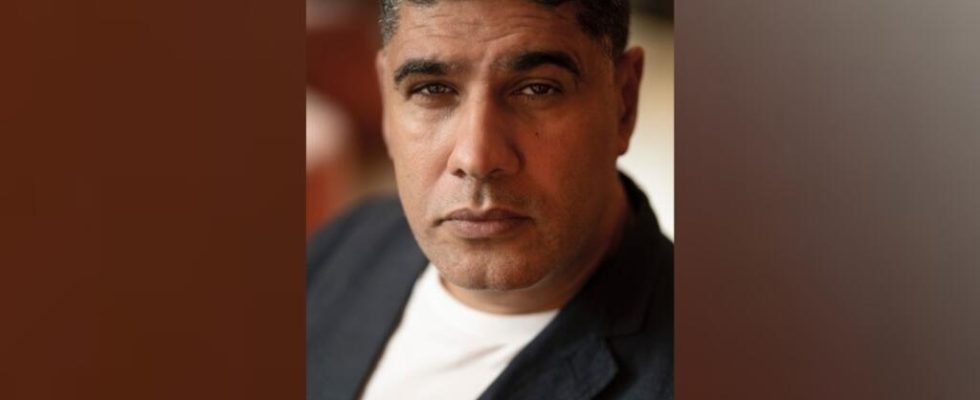The Silences of the Fathers is the fourth novel from the pen of the Franco-Moroccan writer Rachid Benzine. This novel about the unsaid and resentments between father and son, against a backdrop of immigration drama, has been qualified by critics as one of the most beautiful books of the fall 2023 literary season. A story overwhelming with humanity and hope.
Teacher, Islamologist and associated researcher at the Protestant Institute of Theology for the Ricoeur fund, Rachid Benzine became known in the late 1990s as an essayist, and recently as co-author with Rabbi Delphine Horvilleur for A thousand and one ways of being Jewish or Muslim. This book is a progressive and enlightened dialogue on our individual practices of religiosity, but also on the relationships between religions.
Benzine is also the author of four novels, novels whose protagonists are “ little characters »: a mother from Moroccan immigration, in love with Balzac and popular French song, a Tunisian prostitute and mother… Her new novel with the protagonist a Moroccan wretched of the earth evolving in the France of the Thirty Glorious Years is no exception not to the rule. A tribute to the first generation of migrants whose experiences are often “tiny” and “erased”, the work is part of the philosophy dear to the author: all life is worthy of being told.
“ All life is a story, says the writer. I write because there are stories that are invisible, excluded. Every life deserves a story. This is why I write, because there are lives that we consider tiny, there are lives that are prevented. It is important that these stories can exist in our memory and can have their place completely because if you no longer have the memory of the little people, of those who precede you, they risk disappearing in the corridors of the world. History and becoming ghosts. »
Insurmountable distance
At the heart of the novel, a father-son duo. Landing in France during the post-war years, the father worked hard to provide for his family. He was a miner in the coal mines of the Northern basin, a worker in a cement factory, a seasonal worker in market gardens in the South. The father’s sacrifices benefited the son who became an internationally renowned classical pianist, but as the years passed, they grew apart. The misunderstandings, the unsaid, the silences have contributed to establishing an insurmountable distance between the two.
The son, narrator of the story, reproaches his silent father for his silence, which is at the origin of their misunderstandings. This reproach resonates from the first pages of the novel: “ My father never left the backstage. He stands there without saying a word. If I try to hear him, to make his voice resonate in my memory, there is no sound, no intonation. Not even an expression. No word of the country, of Basmala – nothing… »
And Rachid Benzine added: “The Silence of the Fathers is the most intimate book I have ever written. We have a son who returns to bury his father whom he has not seen for 22 years and therefore who himself has not spoken about his feelings, his fears, even the resentment he may have towards towards his father. And then this father himself who did not tell his own life, his own story. And this story will be told when the son, when moving the apartment, finds audio cassettes that his father sent to his grandfather who remained in Morocco. And through these audio cassettes, he will go in search of this father who will take him from the North to the South of France, where he will discover that these fathers who were silent were not as silent as that. »
Amine’s quest
Rachid Benzine’s novel tells of a quest that leads the narrator across France, meeting the men and women who knew his father, while listening to the late father’s voice in audio cassettes. This quest is also a fictional device to tell the story of the father’s life, made up of battles, convictions, transgenerational allegiances. The most beautiful pages of the book are the letters that the father addresses to his own father, revealing his nostalgia for the country he left at 19 to come work in France, his dismay at the codes of his host country where he encounters love and hatred, generosity and pettiness which are not just bureaucratic. His life was a struggle.
Amine’s quest will help bridge the gap that has been created between father and son. The latter will eventually understand the meaning of his father’s silences. “ Silence is a response to the chaos of the world, a kind of challenge to the adventures of life », writes the author, quoting Walter Benjamin.
The silences of the fathers is a moving, poignant novel, also imbued with social gravity. The author’s entire art consists of continually moving the reader from the intimate to the social, from family secrets to historical secrets. The little story of Amine and his father plays out against the backdrop of the great social history of immigration, as the author reminds us. “ Through this father, I tell, underlines Benzineapproximately 70 years of immigration to French society and that these immigrants also have particular stories and adventures, stories that are not sufficiently told, which are not sufficiently known. »
This concern to embrace the universal is present from the title of the book which makes us understand from the outset that the author’s ambition is to recount less the silences of a father in the singular than The silences of the fathersfathers in the plural, of all fathers, fathers from here and elsewhere.
The silences of the fathers, by Rachid Benzine. Éditions du Seuil, 172 pages, 17.50 euros.
